homemade dog food large breed
Homemade Dog Food for Large Breeds

Large breed dogs have different nutritional needs than small breed dogs. They need more calories, protein, and calcium to support their growth and development. Homemade dog food can provide these nutrients in a way that is tailored to your dog's individual needs.
What are the benefits of homemade dog food for large breeds?
There are many benefits to feeding your large breed dog homemade food. Some of the advantages include:

- Nutritional control. You can control the ingredients in your dog's food, ensuring that they get the nutrients they need in the right amounts. This is especially important for large breed dogs, who are more prone to developing health problems if they are not properly fed.
- Freshness. Homemade dog food is fresh, which means that it is more nutritious than store-bought food that has been sitting on a shelf for months.
- Taste. Most dogs love homemade food, and they will be more likely to eat it if it is fresh and flavorful.
- Cost savings. Homemade dog food can be more cost-effective than store-bought food, especially if you buy your ingredients in bulk.
What are the risks of homemade dog food for large breeds?
There are a few risks associated with feeding your large breed dog homemade food. Some of the potential risks include:

- Nutritional imbalances. If you are not careful, you could create a nutritional imbalance in your dog's diet by adding too much or too little of certain nutrients. This can lead to health problems.
- Foodborne illness. If you are not careful, you could contaminate your dog's food with bacteria, which could lead to foodborne illness.
- Ingestion of harmful ingredients. If you are not careful, your dog could ingest harmful ingredients in their food, such as bones, onions, or garlic. This can lead to health problems.
How to make homemade dog food for large breeds
Making homemade dog food for large breeds is not difficult, but it does require some planning and preparation. Here are the steps involved:
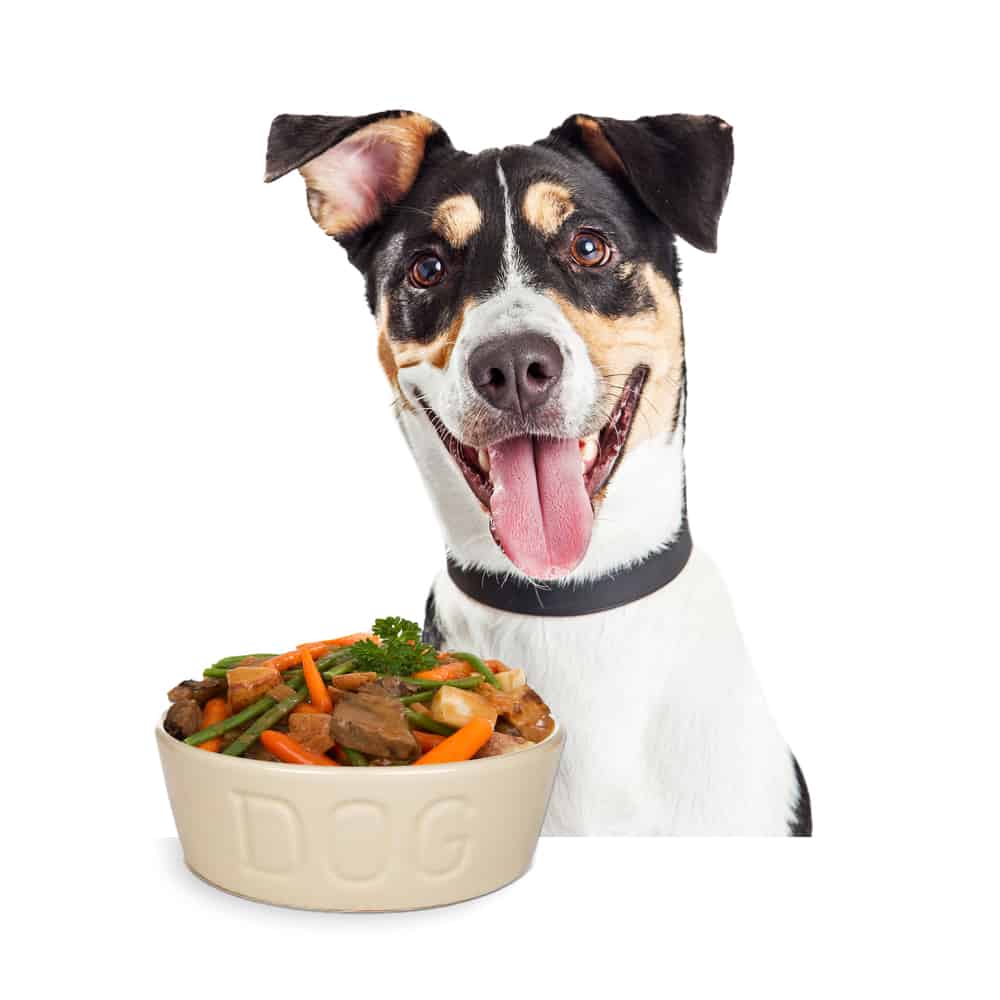
- Choose a recipe. There are many different recipes for homemade dog food available online and in cookbooks. Choose a recipe that is specifically designed for large breed dogs and that meets your dog's individual needs.
- Gather your ingredients. You will need to gather all of the ingredients for the recipe you have chosen. Make sure to use fresh, high-quality ingredients.
- Prepare the ingredients. Some ingredients, such as meats and vegetables, will need to be cooked before they can be added to the food.
- Assemble the food. Once all of the ingredients have been prepared, you can assemble the food. Be sure to mix all of the ingredients together thoroughly so that your dog gets a balanced meal.
- Store the food. Homemade dog food can be stored in the refrigerator for up to 5 days or in the freezer for up to 3 months.
Tips for feeding homemade dog food to large breeds
Here are a few tips for feeding homemade dog food to large breeds:


- Start by gradually introducing the new food to your dog's diet. Mix a little bit of the homemade food with their regular food and gradually increase the amount of homemade food over time. This will help to prevent stomach upset.
- Make sure to feed your dog enough food. Large breed dogs need a lot of calories to support their growth and development. Talk to your veterinarian about how much food your dog needs each day.
- Monitor your dog's weight closely. Large breed dogs are prone to obesity, so it is important to monitor your dog's weight and adjust their food intake as needed.
- Be sure to provide your dog with plenty of fresh water.

Conclusion
Homemade dog food can be a healthy and nutritious option for large breed dogs. By following these tips, you can make sure that your dog is getting the nutrients they need to stay healthy and happy.


Homemade Dog Food Recipes for Large Breeds

Here are a few recipes for homemade dog food that are specifically designed for large breed dogs:
- Beef and Vegetable Stew


Ingredients:
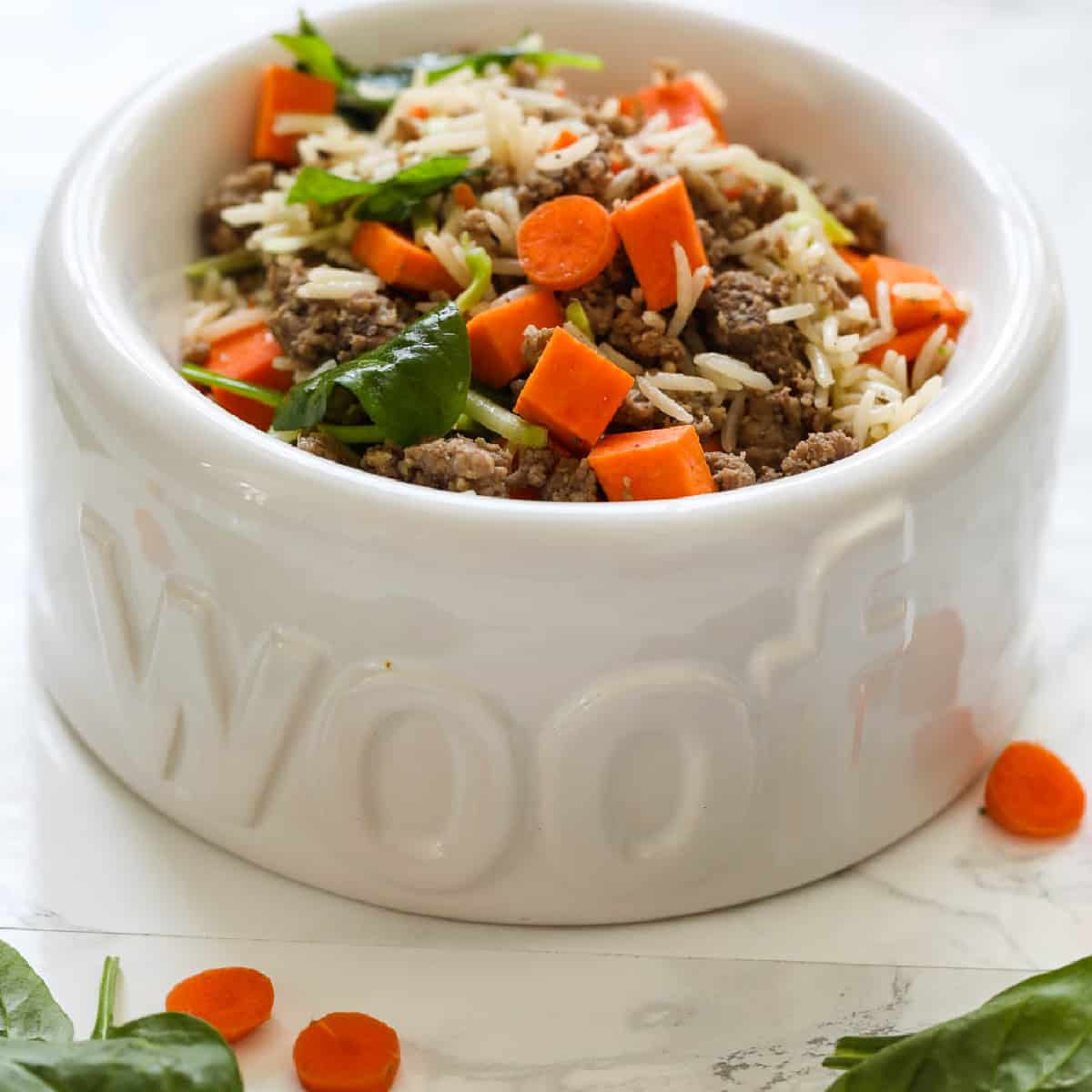
- 1 pound ground beef
- 1 cup chopped carrots
- 1 cup chopped celery
- 1 cup chopped green beans
- 1 cup chopped potatoes
- 1 cup water
- 1 tablespoon vegetable oil
- 1 teaspoon salt
- 1/2 teaspoon dried oregano
- 1/4 teaspoon dried thyme
Instructions:
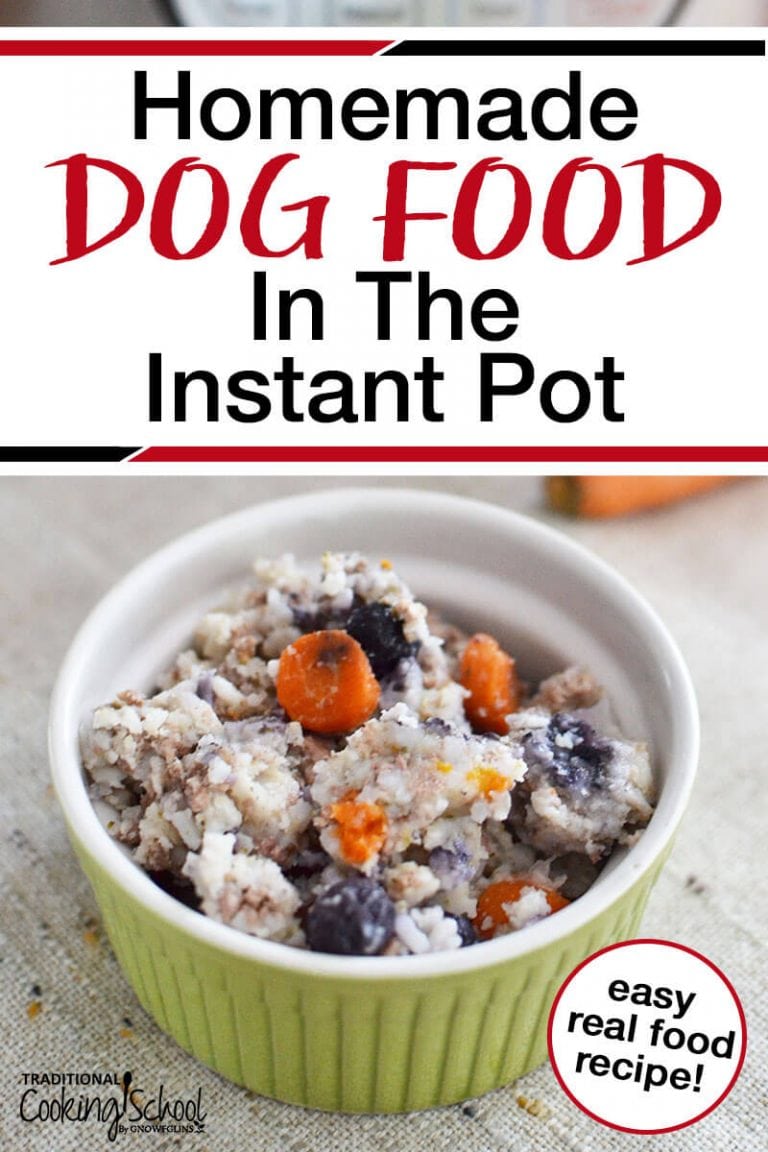
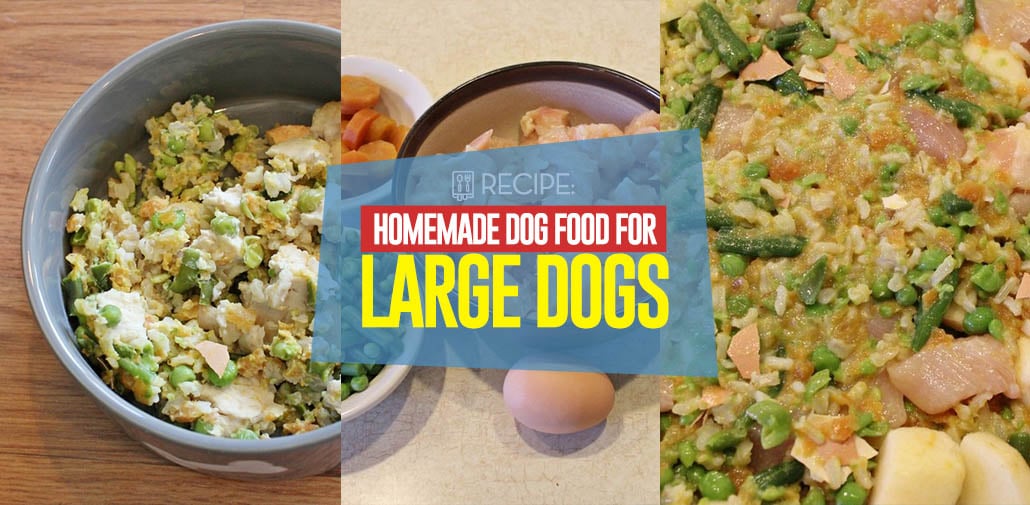
- In a large pot or Dutch oven, heat the oil over medium heat.

Homemade Dog Food for Large Breeds
Large breed dogs have different nutritional needs than smaller dogs. They need more calories, protein, and calcium to support their growth and development. Homemade dog food can provide these nutrients in a balanced way, and it can also be customized to meet your dog's individual needs.
What are the nutritional needs of large breed dogs?

Large breed dogs need more calories than smaller dogs, because they have a higher metabolism. The recommended daily calorie intake for a large breed dog ranges from 1,500 to 2,500 calories, depending on the dog's age, weight, and activity level.
Large breed dogs also need more protein than smaller dogs. Protein is essential for building and repairing muscle tissue, and it also provides energy. The recommended daily protein intake for a large breed dog is 22 to 28% of their total caloric intake.
Calcium is another important nutrient for large breed dogs. Calcium is essential for bone growth and development, and it also helps to prevent osteoporosis. The recommended daily calcium intake for a large breed dog is 1.2 to 1.5 grams per day.

In addition to these nutrients, large breed dogs also need vitamins, minerals, and antioxidants. Vitamins and minerals are essential for overall health, and antioxidants help to protect cells from damage.
What foods should you include in homemade dog food for large breeds?
When making homemade dog food for large breeds, it is important to include a variety of nutrient-rich ingredients. Some good choices include:

- Meat: Beef, chicken, turkey, lamb, and fish are all good sources of protein.
- Grains: Brown rice, oatmeal, barley, and quinoa are all good sources of carbohydrates.
- Vegetables: Carrots, peas, broccoli, and spinach are all good sources of vitamins, minerals, and antioxidants.
- Fruits: Apples, bananas, blueberries, and strawberries are all good sources of vitamins, minerals, and antioxidants.
You can also add supplements to your homemade dog food to ensure that your dog is getting all the nutrients they need. Some good choices include:

- Calcium supplements
- Vitamin D supplements
- Omega-3 fatty acid supplements


How much homemade dog food should you feed your large breed dog?
The amount of homemade dog food you should feed your large breed dog depends on their age, weight, and activity level. A good rule of thumb is to start with 2 to 3 cups of food per day and adjust the amount as needed. You can also consult with your veterinarian for specific feeding recommendations.

How to make homemade dog food for large breeds


Making homemade dog food for large breeds is not difficult. Here are the basic steps involved:
- Gather your ingredients. You will need a variety of nutrient-rich ingredients, including meat, grains, vegetables, and fruits. You may also want to add supplements to ensure that your dog is getting all the nutrients they need.
- Prepare the ingredients. Meat should be cooked thoroughly, and vegetables and fruits should be chopped or shredded.
- Combine the ingredients. Mix the ingredients together in a large bowl until they are well combined.
- Store the food. Homemade dog food can be stored in the refrigerator for up to 5 days or in the freezer for up to 3 months.
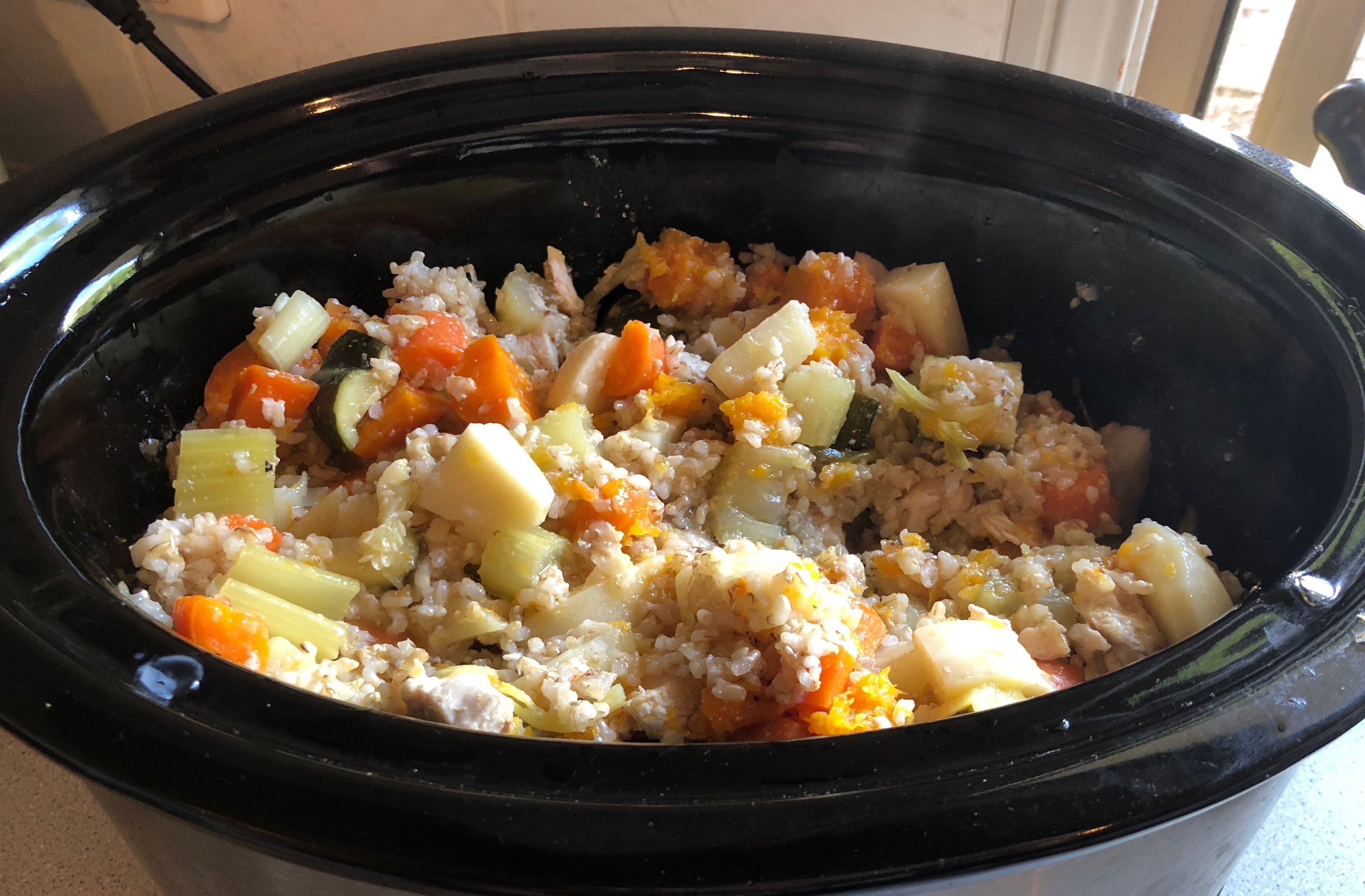
When feeding your dog homemade dog food, be sure to:


- Feed your dog at regular intervals.
- Provide fresh water at all times.
- Monitor your dog's weight and adjust the amount of food you are feeding as needed.
- Consult with your veterinarian if you have any concerns about your dog's diet.
Homemade dog food can be a healthy and nutritious option for large breed dogs. By following these tips, you can make sure that your dog is getting the nutrients they need to stay healthy and happy.

Here are some additional tips for making homemade dog food for large breeds:

- Start with a basic recipe and then add or subtract ingredients as needed.
- Cook the meat until it is well done, but not overcooked.
- Avoid using too much salt or seasonings.
- Use fresh ingredients whenever possible.
- Store the food in airtight containers in the refrigerator or freezer.
- Thaw frozen food before feeding it to your dog.
- Monitor your dog's weight and adjust the amount of food you are feeding as needed.
- Consult with your veterinarian if you have any concerns about your dog's diet.
